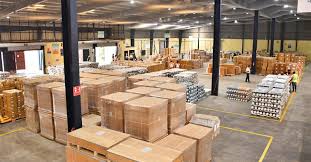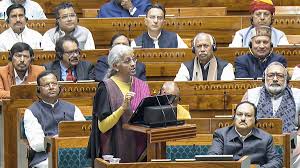Sunil Kohli, Managing Director, Rahat Cargo, outlines challenges like privacy, security, tech immaturity, and market uncertainty obstructing blockchain adoption in food traceability. He advocates for its potential to enhance transparency, traceability, and efficiency.

Blockchain transforms food safety with swift detection and seamless batch tracing
In the quest for safer, more transparent food systems, blockchain technology emerges as a beacon of promise. Yet, its journey to widespread adoption faces a myriad of challenges. Sunil Kohli sheds light on the intricate roadblocks impeding the seamless integration of blockchain solutions for food traceability. From privacy and security concerns to technological immaturity and market uncertainties, Kohli unravels the complexities surrounding blockchain’s application in the realm of food supply chains.
Transparency
Blockchain integration in the food supply chain promises heightened transparency, traceability, safety, and efficiency. Consumers gain unprecedented access to the entire journey of their food, from farm to table. This technology not only enhances industry standards but also instills trust by providing real-time insights into the origin and handling of fresh produce, ensuring a seamless and secure consumer experience.
Secure blockchain
Blockchain technology revolutionises food safety by ensuring swift detection of contaminated ingredients and seamless batch tracing. Through scanning packaging codes, consumers verify product authenticity, aided by blockchain’s immutable data structure. Its transparent nature enables real-time tracking across supply chain checkpoints, fostering consumer trust. With each block cryptographically linked, tampering becomes nearly impossible, underscoring blockchain’s pivotal role in safeguarding data security and privacy throughout the food industry.
Efficient blockchain
Blockchain integration offers a transformative solution for enhancing cost-effectiveness and efficiency throughout the food supply chain. By enabling organisations to comprehensively analyse their supply chain, blockchain ensures real-time tracking of consumables, minimising wastage, and optimising inventory management. Moreover, its transparency fosters trust among stakeholders by providing access to verifiable data points, including certifications and claims. This transparency not only enhances consumer engagement but also enables stakeholders to accurately identify demand trends, thereby streamlining operations and driving overall efficiency within the food industry.
Future
The future of blockchain in the fresh food supply chain holds promise for enhanced consumer satisfaction and operational efficiency. While the technology’s potential is undeniable, its widespread adoption requires concerted efforts from stakeholders and governmental bodies to promote awareness and alleviate financial concerns. Despite potential challenges, blockchain has emerged as a transformative force poised to revolutionise the food industry, signaling a paradigm shift towards greater transparency and reliability in food traceability.
As stakeholders collaborate and embrace blockchain’s potential, its integration into the fresh food supply chain promises a future marked by heightened trust, efficiency, and consumer satisfaction.











